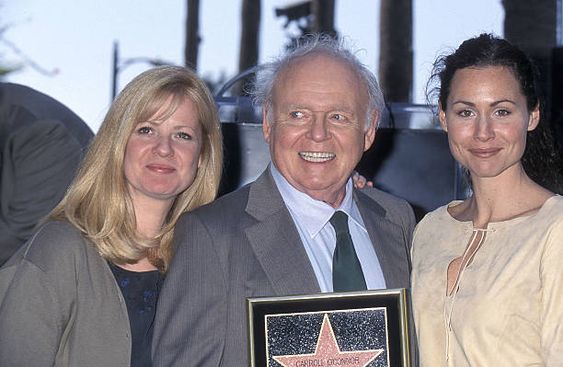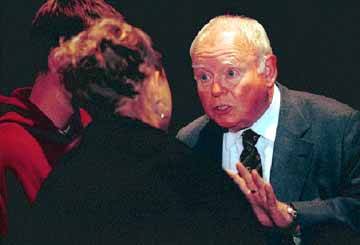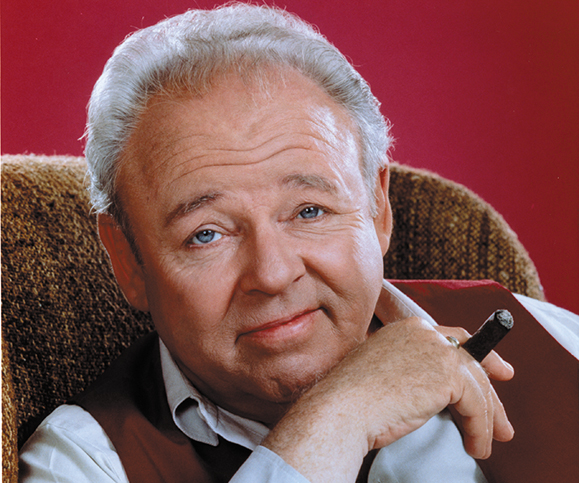
Carroll O’Connor returns to UM
The public does not have a right to know about the sex lives of politicians, actor and alumnus Carroll O’Connor told journalism students at the University of Montana on Tuesday.
“As a matter of fact, in my day we always thought you had a right to lie about affairs – and if you were a gentleman, you had an obligation to lie,” said O’Connor, known best as the bombastic Archie Bunker on the television series “All In The Family.”

O’Connor spent the day at UM dispensing advice first to theater students, then to would-be journalists. He and his wife will be guests of honor Wednesday at the newly renamed Carroll and Nancy Fields O’Connor Center for the Rocky Mountain West, UM’s regional studies and public policy institute.
The O’Connors donated $1 million to the center as part of UM’s Capital Campaign, which matched a challenge grant from the National Endowment for the Humanities.
On Tuesday, Carroll O’Connor – who earned a master’s degree in speech from UM – chastised journalists during both of his classroom visits.
The U.S. Constitution makes no promises about the public’s right to know, he told students at the School of Journalism. “The public has no right to know anything personal about you. The press has an obligation to respect your private life.”

That obligation extends to the media’s treatment of public officials, O’Connor insisted. President Clinton had a right to lie – “or at least a right to try to lie” – about his affair with Monica Lewinsky.
And the press, he said, should have withheld some of the sexy details provided by special prosecutor Kenneth Starr.
Earlier, O’Connor warned drama students that theater critics know nothing of art.
“They shouldn’t say these things and they’re stupid and they shouldn’t get away with these things,” O’Connor said, telling how a critic in San Francisco panned his play “A Certain Labor Day” and cost him $1 million when the show closed prematurely.
“The San Francisco Chronicle guy came to see the play – he was a guy, not a critic,” he said. “He is the only paid idiot I know.”
Someone had told the writer that the play, which was written by O’Connor, was autobiographical. It was not, but was instead the story of a once-discredited, now-vindicated labor leader. The critic responded with a negative review.

“We couldn’t possibly have been bad,” O’Connor said. “I can’t be bad as long as I’ve got my brains.”
Yes, he assured the thespians, it is tough to break into theater. Yes, you’ll have to wait tables. Yes, it could take years to repay all the money owed your parents.
But there are more opportunities than ever in regional theater and on college campuses – and off Broadway, he said. “There is plenty of open territory out there, where they need you and want you. I don’t want people to feel their possibilities are foreclosed.”
O’Connor promised both journalism and drama students to provide money to bring more working professionals into their classes. And he suggested a new communications major that would prepare students for the century ahead.
“You’d get a bachelor of arts degree in communications, then a minor in journalism or drama or music, even dance,” he said. “For the coming decades, communications are everything.
“Everything else is the stuff that is being communicated.”
At the Center for the Rocky Mountain West, director Dan Kemmis said he is working with O’Connor to develop a film course that would use western films as a way to better understand the region. O’Connor would teach the course, sometimes in the classroom, sometimes from a distance by satellite hookup.

Nancy Fields O’Connor is particularly interested in the center’s work on tribal issues. A Montana native, she is part Shawnee Indian. Her grandfather, Fred Miller, was an adopted member of the Crow tribe who photographed the tribe during the last years of traditional plains life.
The Center for the Rocky Mountain West is intended to help the region understand itself, Kemmis said. “We do that in a cross-disciplinary way using both history and culture as well as economics and public policy.”
Kemmis and others will honor the O’Connors for their contribution to the center’s future at a naming ceremony at 2 p.m. today at the old Milwaukee Station, 250 Station Drive. The center’s offices are on the second floor of the depot.
